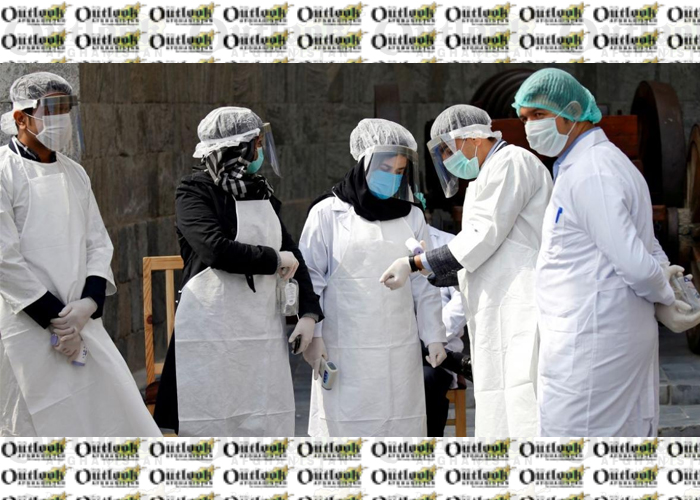With the onset of covid-19 pandemic, millions of people around the world, including Afghanistan, complain about psychological problems. The covid-19 health crisis combined with increasing war and poverty is widely blamed for the problem. One of those psychological problems which are raised among intellectual community is mental exhaustion or mental fatigue. This problem has not only hampered the intellectual activities but also economic and social mobility. This issue has not only demobilized the ordinary people, but also the students, professors and researchers from effective use of the quarantine period and so many tried running away from distant learning programs. As a result, the respective officials did not recognize the distant learning programs and seemingly will not count it effective in the country.
For a deeper understanding about mental exhaustion, we have to start from its definition. Mental exhaustion is referred to feeling of being tired during daily activities. Other terms which describe the concept of mental exhaustion include: reduced or no energy, physical or mental exhaustion, lack of motivation, burnout and mentally being fatigue or tired. It is generally different from the sleepy feeling of drowsiness, or the psychological feeling of apathy, although these might both accompany fatigue. Mental exhaustion can manifest in many ways; it occurs in form of physical fatigue. For example, our body feels tired and rather curls up on the lawn chair with a margarita than head for a run at the end of the day, even though we spent most of the day sitting at a desk. It also appears in form of Impatience and Irritability. The infected individuals become snappish with others and may be more quickly triggered anger or upset. In addition, the infected individuals lose ability to concentrate or focus. It becomes harder to finish our work or tasks and may find it more difficult to make decisions, find the right word, or focus on one job at a time.
According to World Health Organization, mental exhaustion or burnout is not classified as a medical condition but others blamed three medical and none medical factors for mental exhaustion. Firstly, they attribute it to psychological and psychosocial – stress, anxiety and depression; secondly, they blame physical anemia, diabetes, glandular fever and cancer. And lastly, they link it to physiological factors such as pregnancy, breast-feeding, inadequate sleep, and excessive exercise. Those types of fatigue which are not normally considered as medical problem includes tiredness as a result of physical activity, emotional stress, boredom lack of sleep. It has also linked to other factors such as sleep management such as staying up too late, having too much caffeine and also drinking too much alcohol and eating junk food. Some people are more likely than others to suffer from fatigue. For instance, women more often complain about fatigue. People who live in poverty and those with mental or physical illness are also more likely to present with fatigue.
As already mentioned, it creates multiple problems for individuals such as lack of concentration, irritability, mental-block, lack of energy, loss of interest and motivation in certain activities, brain fatigue and change in appetite are all symptoms of mental exhaustion. Mental exhaustion can also lead to full-blown burnout, physical issues, and stress-related illness. In general, the more mentally tired we become, the less capable we are of keeping up with the demands of the day. It becomes harder to make healthy decisions or stay focused on tasks, and remains calm. It can also become difficult to regulate our emotions.
According to experts, there is no single treatment for mental exhalation – because the management approach depends on the cause of the problem. If there is no underlying medical explanation for the fatigue, the lifestyle and dietary modifications may help resolve it. For example, we can Improve sleep habits, balancing rest and activity and regular exercise, cutting out caffeine and drinking plenty of water, eating healthy to avoid becoming overweight or underweight, setting realistic expectations for workload and schedule. taking time to relax, perhaps trying meditation or yoga, identifying and dealing with stressors by, for example, taking time off work or resolving relationship problems and finally avoid the use of alcohol, nicotine, and illegal drugs.
In regard to dietary modifications, it is said that 90% of what we put in our body will change the scope of our health in a positive way. Eating the right foods is definitely something that we should do to get more energy and subsequently be healthier. Fruits and vegetables along with plenty of water can be a start for anyone that’s struggling to get their energy back. Some sources recommend taking multivitamins as it gives a lot of energy but we need to consult a doctor before taking any medicines. Some experts advise for taking enough iron as it is a core ingredient for correlating various energies.
As to physical exercise, there is a unanimous agreement amongst health community that healthy life is not possible without physical exercise. So, it seems that physical exercise and balanced activities and rest are of the best ways out of mental tiredness and healthy life style. The thing that we need to understand about exercise is that it’s a process. It starts with a plan so not to get up and start exercising without structure and approval from your physician. In fact, it is not enough to abruptly get a gym membership and we need to do under health expert. As a lost point, avoiding from negativity and toxic energy givers is also an important point for maintaining a healthy life style.
Home » Opinion » Mental Exhaustion and Its Ways Out
Mental Exhaustion and Its Ways Out
| Mohammad Zahir Akbari

